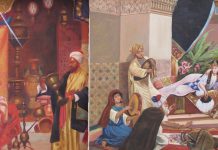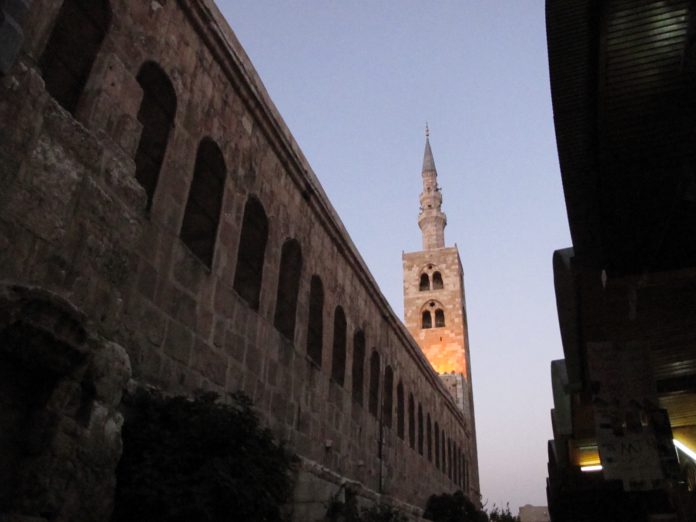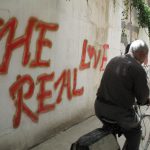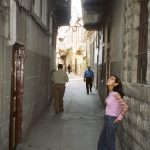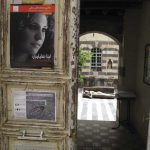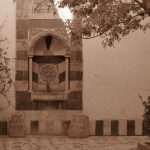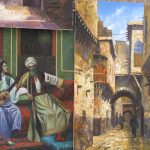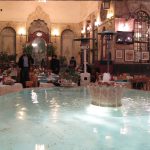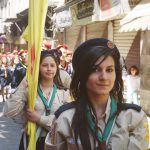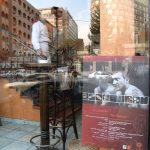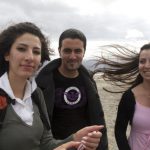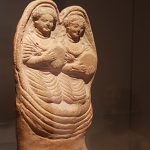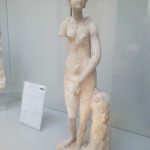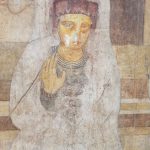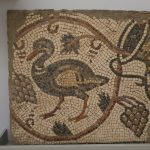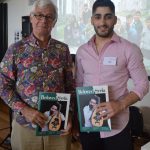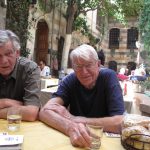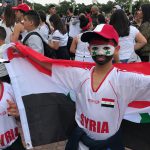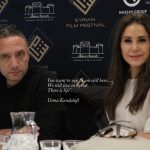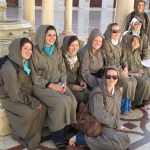… any attempt to force cultures and peoples into separate and distinct breeds or essences exposes not only the misrepresentations and falsifications that ensue, but also the way in which understanding is complicit with the power to produce such things as the “Orient” or the “West”.’
– Edward W. Said (Orientalism, p. 348, 1995 Penguin edition)
The following article appeared in Beloved Syria – Considering Syrian Perspectives, Spring 2016 edition
Edward W.Said
A Community of Civilisations
In 1998, the late Edward W. Said, a professor at Columbia University and the author of Orientalism and Covering Islam, presented a lecture entitled The Myth of ‘The Clash of Civilizations’. In it, Professor Said responds to Samuel Huntington’s The Clash of Civilizations, published in 1995. Both the lecture by Professor Said and the transcript of The Myth of ‘The Clash of Civilizations’ are available online. (Ref: Media Education Foundation.) Below are direct extracts from the lecture that may inform us on the current situation facing Syria and the world in general. Professor Said quotes from Samuel Huntington, who claimed, ‘The clash of civilizations will dominate global politics’. Said explains that Huntington gives a great deal of ‘hostile attention’ to Islam.
The core of Huntington’s vision … is the idea of an unceasing clash, a concept of conflict, which slides somewhat effortlessly into the political space vacated by the unremitting war of ideas and values embodied in the un-regretted Cold War of which of course, Huntington, was a great theorist. I don’t think therefore it’s inaccurate to suggest that what Huntington’s providing in his work, especially since it’s primarily addressed to influential opinion and policy makers, is in fact a recycled version of the Cold War thesis that conflicts in today’s and tomorrow’s world will remain not economic or social in essence but ideological. And if that is so, one ideology, the West, is the still point or the locus, around which for Huntington all other civilizations turn. In effect then, the Cold War continues, but this time on many fronts, with many more serious and basic systems of values and ideas like Islam and Confucianism struggling for ascendancy and even dominance over the West. Not surprisingly, therefore, Huntington concludes his (book) with a survey of what it is that the West must do to remain strong and keep its opponents weak and divided.
He says, “The West must exploit differences and conflicts among Confucian and Islamic states to support in other civilizations groups sympathetic to Western values and interests. To strengthen international institutions that reflect and legitimate western interests and values, and to promote the involvement of non-western states in those institutions.” And that’s a very interventionist and quite aggressive attitude towards other civilizations to get them to be more western. So strong and insistent is Huntington’s notion that other civilizations necessarily clash with the West and so relentlessly aggressive and chauvinistic is his prescription for what the West must do to continue winning, so that the reader is forced to conclude that he’s really most interested in continuing and expanding the Cold War by other means, rather than advancing ideas that might help us to understand the current world scene or ideas that would try to reconcile between cultures.
Not only will conflict continue, but he says, the conflict between civilizations will be the latest phase in the evolution of conflict in the modern world. It’s as a very brief and rather crudely articulated manual in the art of maintaining a wartime status in the minds of Americans and others, that Huntington’s work has to be now understood. I go so far as saying that it argues from the standpoint of Pentagon planners and Defence industry executives, who may have temporarily lost their occupations after the end of the Cold War but have now discovered a new vocation for themselves. But perhaps because Huntington is more interested in policy prescriptions than he is either in history or careful analysis of cultures, Huntington in my opinion is quite misleading in what he says and how he puts things. A great deal of his argument, first of all, depends on second and third hand opinion that scants the enormous advances in our concrete understanding and theoretical understanding of how cultures work. How they change, and how they can best be grasped or apprehended….

Far from being an arbiter between civilizations, which is what he suggests he might be doing, Huntington is a partisan, advocate of one civilization over all the others. … To emphasize the differences between cultures is completely to ignore the literally unending debate about defining the culture or civilization within those civilizations including western ones. These debates completely undermine any idea of a fixed identity and hence the relationships between identities. …
Too much attention paid to managing and clarifying the clash of cultures obliterates something else, the fact of a great and often silent exchange and dialogue between them. What culture today, whether Japanese, Arab, European, Korean, Chinese, Indian, has not had long intimate and extraordinarily rich contacts with other cultures? There is no exception to this exchange at all….
It seems to me that unless we emphasize and maximize a spirit of cooperation and humanistic exchange, and here I don’t speak simply of uninformed delight or amateurish enthusiasm for the exotic but rather a profound existential commitment and labour on behalf of the other. Unless we do that, we are going to end up superficially and stridently banging the drum for our culture in opposition to all the others….

…the weakest part of the clash of cultures and civilizations thesis is the rigid separation assumed between them despite the overwhelming evidence that today’s world is, in fact, a world of mixtures, of migrations and of crossings over, of boundaries traversed. One of the major crises affecting countries like France, Britain and the U.S. has been brought about by the realization, now dawning everywhere, that no culture or society is purely one thing. Sizeable minorities, North Africans in France, the African Caribbean, and Indian populations in Britain, Asian and African elements in this country, dispute the idea that civilization, that prided themselves on being homogeneous can continue to do so. There are no insulated cultures or civilizations. Any attempt made to separate them into the watertight compartments alleged by Huntington and his ilk does damage to their variety, their diversity, their sheer complexity of elements, their radical hybridity. The more insistent we are on the separation of the cultures, the more inaccurate we are about ourselves and about others. The notion of an exclusionary civilization is to my way of thinking an impossible one. The real question then is whether in the end we want to work for civilizations that are separate or whether we should be taking the more integrative but perhaps more difficult path which is to try to see them as making one vast whole, whose exact contours are impossible for any person to grasp, but whose certain existence we can intuit and feel and study.
Our most precious asset in the face of such a dire transformation of history is the emergence not of a sense of clash but a sense of community, understanding, sympathy, and hope
Much more productive and useful is a new global mentality or consciousness that sees the dangers we face from the standpoint of the whole human race. These dangers include the pauperization of most of the globe’s population, the emergence of virulent local, national, ethnic and religious sentiment as in Bosnia, Rwanda, Lebanon, Chechnya and elsewhere, the decline of literacy and onset of a new illiteracy based on electronic modes of communication, television and the new information global superhighway, the fragmentation and threatened disappearance of the grand narratives of emancipation and enlightenment. Our most precious asset in the face of such a dire transformation of history is the emergence not of a sense of clash but a sense of community, understanding, sympathy, and hope, which is the direct opposite of what Huntington provokes.
… efforts to return the community of civilizations to a primitive stage of narcissistic struggle, needs to be understood, not as descriptions about how in fact civilizations behave, but rather as incitements to wasteful conflict and un-edifying chauvinism and that seems to be exactly what we don’t need.













